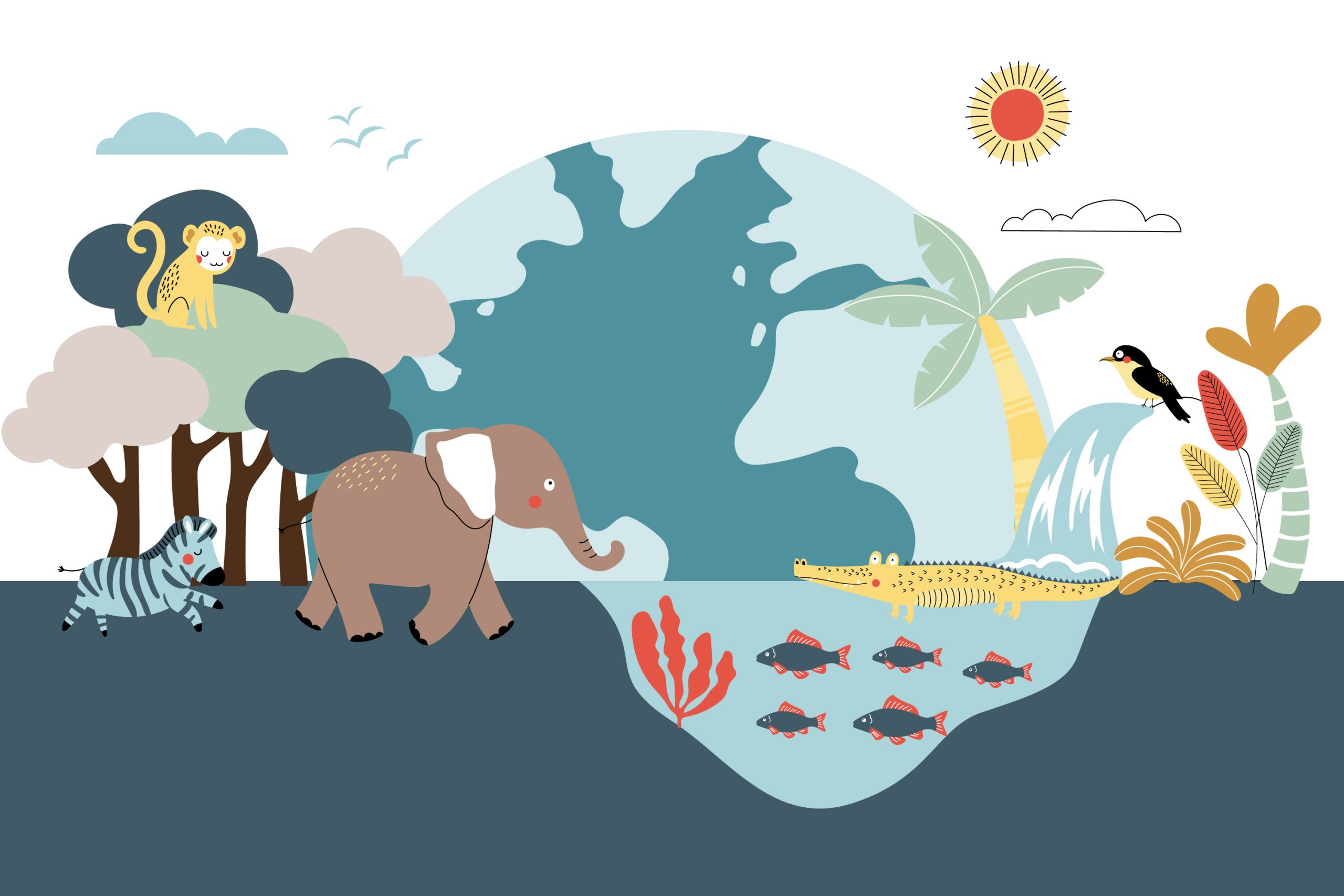Climate change has become one of the most pressing global challenges of our time. Beyond rising temperatures and extreme weather events, climate change poses a significant threat to biodiversity and the delicate balance of ecosystems worldwide. In this article, we will explore the far-reaching effects of climate change on biodiversity, uncovering how changing environmental conditions impact ecosystems, species extinction risks, and the urgent need for conservation efforts.
The Changing Climate Landscape
Climate change is altering the Earth’s climate patterns, leading to shifts in temperature, rainfall, and weather phenomena. These changes disrupt ecosystems that have adapted to specific climatic conditions over millennia. As temperature and precipitation patterns deviate from the norm, ecosystems face substantial challenges in maintaining their ecological balance.
Habitat Loss and Fragmentation
One of the most direct impacts of climate change on biodiversity is habitat loss and fragmentation. Rising temperatures and changing precipitation patterns alter the distribution and availability of suitable habitats for many species. As a result, some habitats become uninhabitable, while others shrink in size or become isolated, reducing species’ ability to migrate and adapt.
Altered Phenology and Migration Patterns
Climate change affects the timing of biological events, such as flowering, breeding, and migration. Shifts in seasonal patterns can disrupt the synchrony between species, leading to imbalances in predator-prey relationships and pollination processes. Species that rely on specific climatic cues for migration face challenges as their traditional routes and timing may become obsolete or mismatched with resource availability.
Species Extinction Risks
Climate change increases the risk of species extinction. Species with narrow climatic tolerances and limited dispersal abilities face the greatest threats. As their habitats shrink or become unsuitable, these species may struggle to find new suitable areas to thrive. Climate change exacerbates existing threats, such as habitat degradation, pollution, and invasive species, pushing vulnerable species closer to the brink of extinction.
Coral Bleaching and Marine Ecosystems
Climate change has severe consequences for marine ecosystems, with coral reefs being particularly vulnerable. Rising ocean temperatures cause coral bleaching, a phenomenon in which corals expel their symbiotic algae, leading to their death and the subsequent degradation of entire reef systems. This impacts the biodiversity and productivity of marine habitats, endangering countless species that depend on coral reefs for food and shelter.
Shifting Species Ranges and Invasive Species
As climatic conditions change, species are forced to adapt or migrate to more favorable habitats. Some species may expand their ranges, colonizing new areas previously unsuitable due to colder temperatures. Conversely, this movement can lead to the introduction of invasive species, which can disrupt native ecosystems and outcompete indigenous species for resources.
Impacts on Ecosystem Services
Biodiversity loss resulting from climate change has significant implications for ecosystem services, such as water purification, pollination, and carbon sequestration. These services are essential for human well-being and sustainable development. Disruptions to these services can have cascading effects on agriculture, human health, and the overall stability of ecosystems.
Conservation Strategies and Mitigation
Addressing the impact of climate change on biodiversity requires a multi-faceted approach. Conservation efforts must focus on preserving and restoring habitats, implementing sustainable land and resource management practices, and reducing greenhouse gas emissions. International collaborations, protected area networks, and community-based conservation initiatives are vital in mitigating the effects of climate change on biodiversity.
Preserving Biodiversity: Urgent Action for Climate Change Mitigation and Conservation
The impact of climate change on biodiversity is profound and far-reaching. As we witness the changing landscapes and the increasing threats to ecosystems and species, urgent action is required to mitigate and adapt to these challenges. By understanding the interconnectedness of climate change and biodiversity loss, we can prioritize conservation efforts, promote sustainable practices, and advocate for policy changes that address climate change at its core. Protecting biodiversity is not only crucial for the health and resilience of ecosystems but also for the well-being and survival of future generations.
